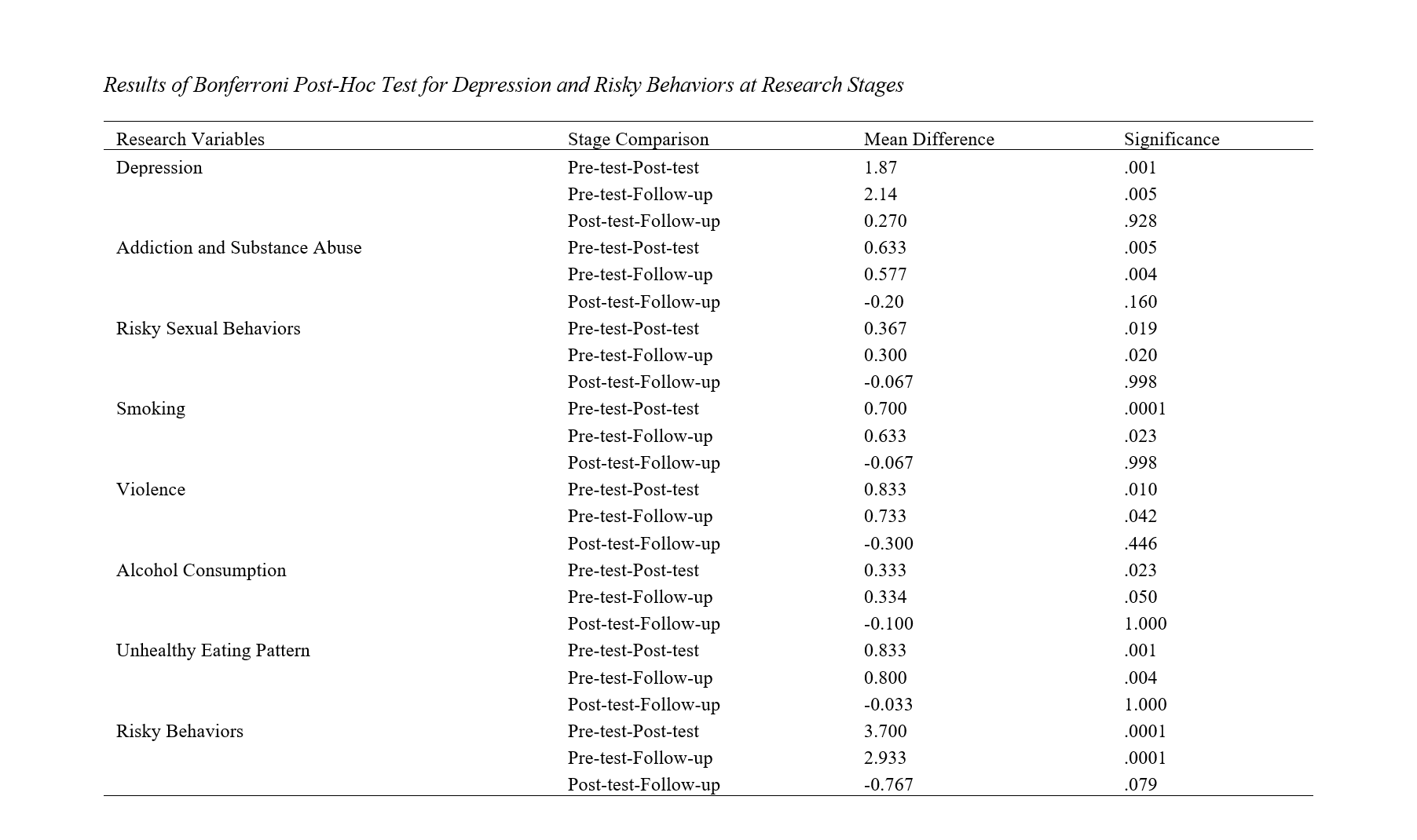The Impact of Group Emotion Regulation Training Based on Gross's Model on Reducing Depression and Risky Behaviors in Depressed Adolescents
Keywords:
Emotion Regulation Training, Depression, Risky Behaviors, Adolescents, Gross's ModelAbstract
Objective: The present study aimed to examine the effectiveness of group emotion regulation training based on Gross's model in reducing depression and risky behaviors in adolescents.
Methods and Materials: This semi-experimental research employed a pre-test–post-test control group design with a follow-up period. The research population consisted of depressed adolescent girls who referred to private counseling and psychological services centers in Isfahan in 2022. From this population, 30 individuals were selected through convenience sampling and randomly assigned to the experimental and control groups. The subjects responded to the Beck Depression Inventory (1996) and the Risky Behaviors Questionnaire by Rajabi and Shafi'i (2011) during the pre-test, post-test, and follow-up stages. The experimental group received 8 sessions of 60-minute emotion regulation training based on Gross's model, while the control group did not receive any intervention. Data were analyzed using repeated measures analysis of variance with SPSS22 software.
Findings: According to the results, the within-group variable had a significant effect on depression and risky behaviors (addiction and substance abuse, risky sexual behaviors, smoking, violence, alcohol consumption, and unhealthy eating patterns) (p ≤ 0.001). This means there was a significant difference in depression and risky behaviors scores and their dimensions between the groups in the post-test and follow-up compared to the pre-test. The between-group intervention variable also had a significant effect on reducing depression and risky behaviors and their dimensions (p ≤ 0.001).
Conclusion: Based on these findings, it is recommended that specialists use group emotion regulation training to reduce depression and risky behaviors.
Downloads

Downloads
Additional Files
Published
Issue
Section
License

This work is licensed under a Creative Commons Attribution-NonCommercial 4.0 International License.




























